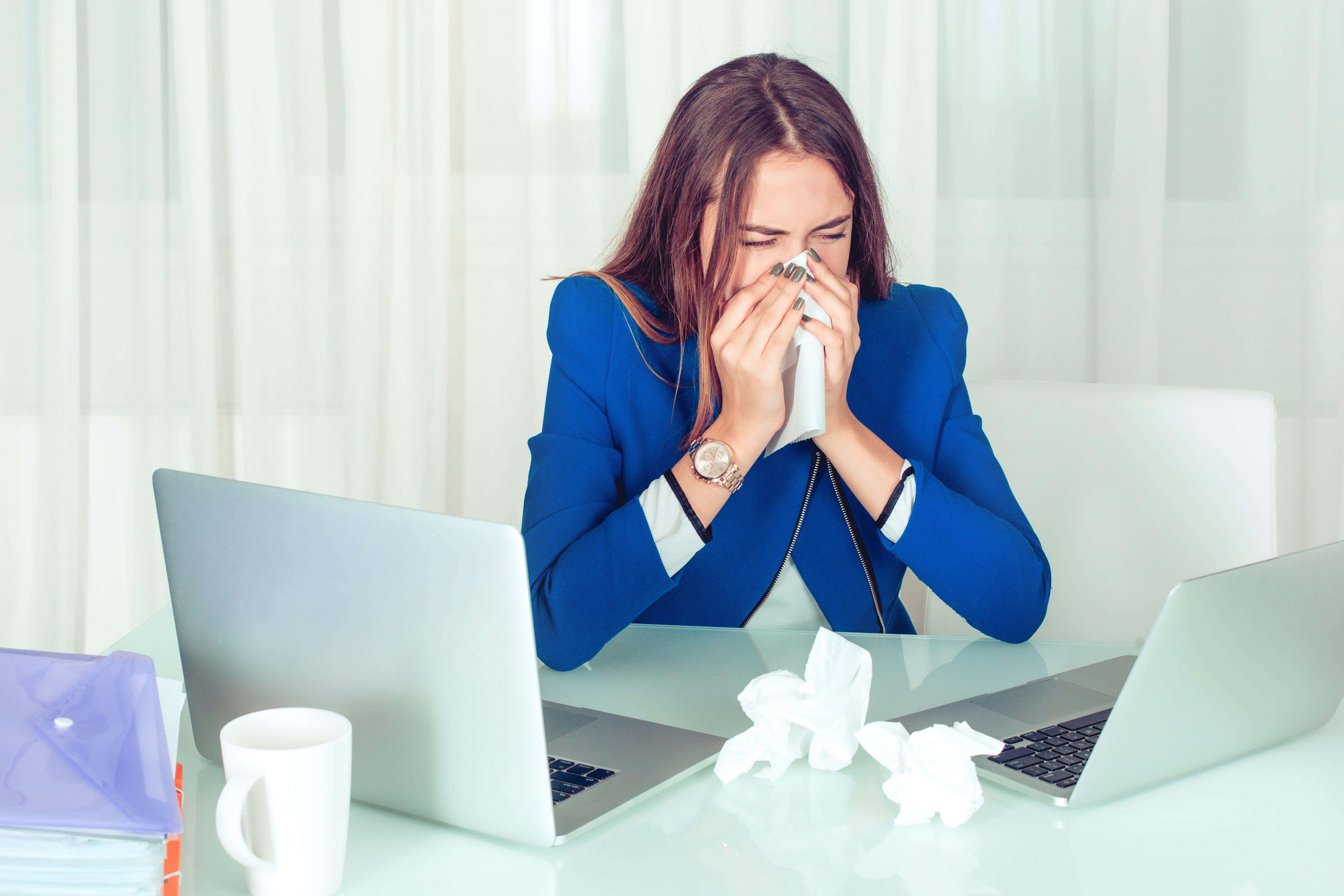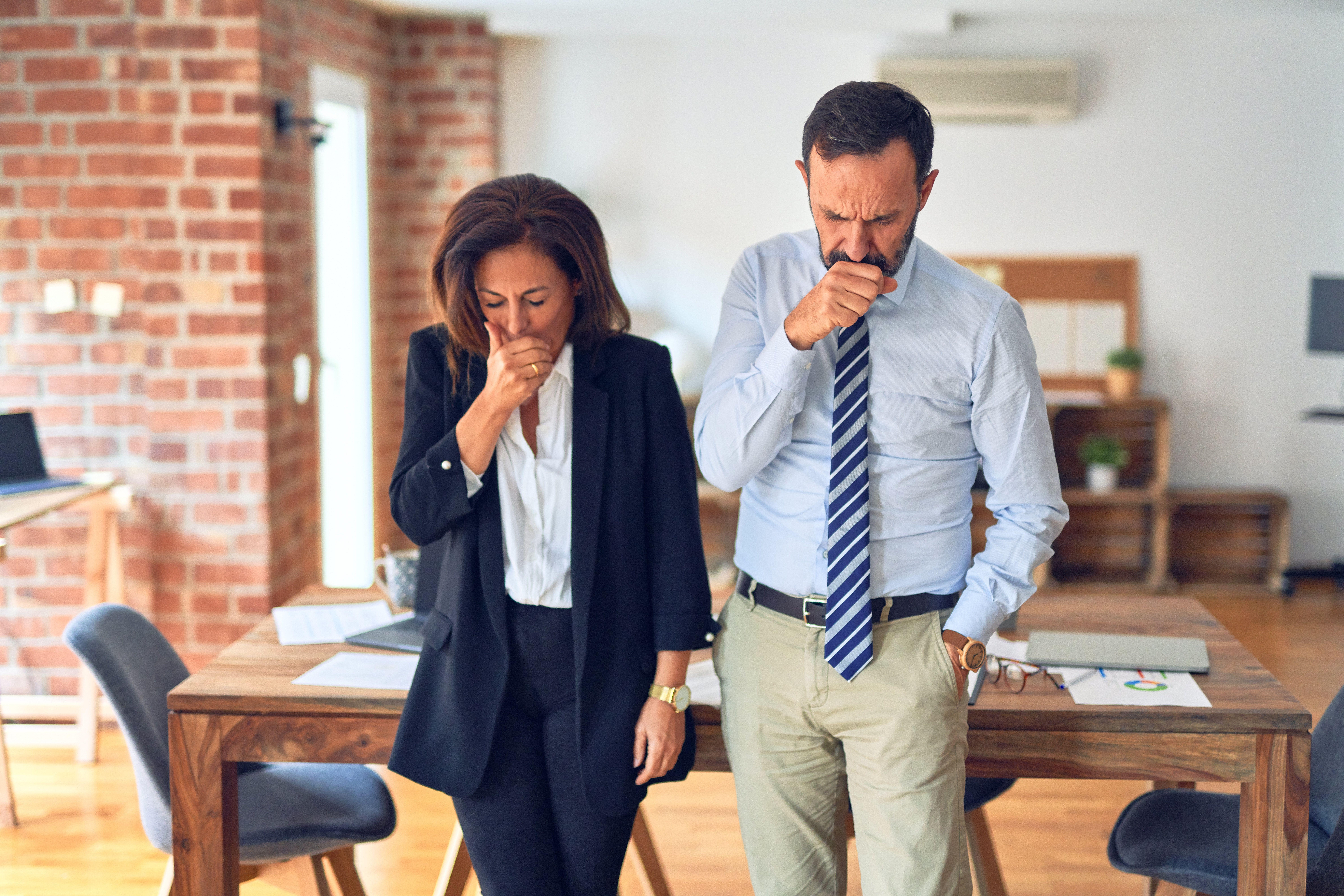How ill do you need to be to take time off work?
Forcing yourself to go into the office while unwell could prolong your recovery

Asking for a day off to recover from illness can seem daunting, but it could save the economy a lot of money.
A new report from The Institute for Public Policy Research’s Commission on Health and Prosperity estimates the hidden cost of sickness on the economy has risen by £30 billion since 2018.
So when is it appropriate to take a sick day, and what are employee rights around this?
Taking a sick day is an individual choice, so listen to your body.

“A day off work may be necessary if your symptoms make it unsafe for you to perform your duties, or if you feel unable to carry out your daily activities effectively,” says Dr Ashwin Sharma from online pharmacy MedExpress.
“This includes experiencing significant fatigue, fever, cough, or any symptoms that could be contagious to others.”
If you are off work for seven days or more, you may need to give your employer proof of sickness from a healthcare professional.
“When you return to work, your employer can ask you to confirm you’ve been off sick, this is called self-certification,” explains Sharma. “Your employer will agree on how you should do this. You might need to fill in a form or send details of your sick leave by email.”
What are the consequences of working while sick?

Continuing to work when you are unwell can lead to several negative consequences.
“You risk worsening your condition and prolonging your recovery time,” warns Sharma. “Additionally, you may spread the illness to your colleagues, potentially causing a wider outbreak in the workplace.”
Working through illness could also negatively impact the quantity and quality of your work, adds Kate Palmer, employment services director at Peninsula UK.
Can I take a day off if I am struggling with my mental health?

“If you are struggling with your mental health, it’s important to discuss your situation with your employer,” advises Sharma. “If you believe working could further impact your mental health, taking time off to rest and recover is advisable.”
Palmer adds: “Some organisations offer employees mental health days where they proactively give employees days off so that they can focus on their mental health.
“This is perhaps a sign that employers are becoming more aware of the need to support employees in this way.”
Will I still get paid if I take a sick day?
Whether you get paid for a sick day or not will depend on your contract’s terms and employer’s policies.
“There are lots of rules around statutory sick pay (SSP) and not everyone will get it from the first day of absence,” explains Palmer. “Some will have to wait to get it, although the situation may be different if there is a contractual sick pay scheme in place.
“SSP can also be significantly less than a person’s regular pay, meaning people may continue working while unwell due to financial pressures.”
What workplace or lifestyle changes will help employees stay fit to work?
Looking at simple things such as diet could help boost your immunity and productivity.
“Eat a balanced diet rich in fruits, vegetables and whole grains to support gut health, stay physically active to boost both mental and immune function, and ensure you get adequate sleep each night,” recommends Sharma. “These habits collectively contribute to a well-functioning immune system and overall wellbeing.”

In addition, offering employees flexibility and wellbeing initiatives could also help cultivate a healthy workplace.
Jostein Håvaldsrud, chief technology officer of workplace-training provider Kahoot! says: “Engaging with hybrid working and work from home can mitigate the potential disruption of taking time off work, with employees who have been off sick being able to engage with certain tasks as and when they feel up to it, without having to come into the office.”
Palmer adds: “Make sure that employees are aware of the support that is on offer to them, send regular reminders about any incentives to ensure they are used.
“If an employee is struggling with their health or having regular sickness absence, then discuss if there is any individual support that can be provided to help.”
Bookmark popover
Removed from bookmarks